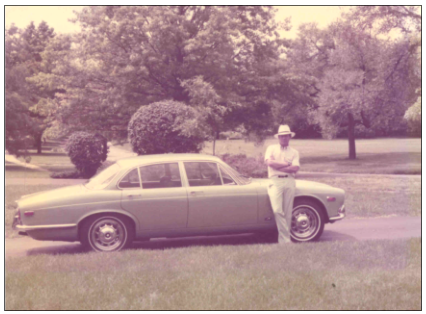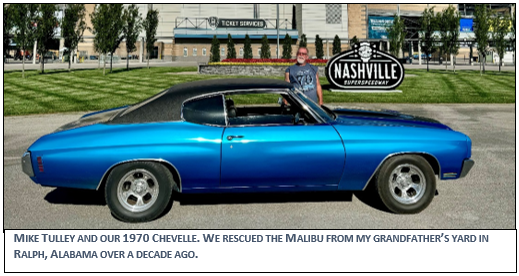Viscosity: Going Down!
Thinner oil is here to stay - even for diesels

April of 2017 will mark my 20th year here at Blackstone and in that time a lot of changes have taken place. I’m a big fan of change myself and long ago got some advice from my Uncle Dan who said, “The only thing that’s constant in life is change.” I decided that his words were the truth, and it seems to me like change should be embraced because there is no stopping it, and also for the most part change is good. It might not seem good on the outset, but if you give it some time, things eventually work out. After a bit of reflection on the changes in the oil industry, I’ve decided that one of the best ones has been the trend to lower viscosity oils.
The thin oil trend
I started changing my own oil on a regular basis in the early ’90s, and at that time 10W/30 was the oil of choice in my 1981 Chevy Citation. I didn’t think that much about it. It said right on the oil cap use 10W/30, so I bought whatever was on sale and went along fat, dumb, and happy.
At that time 5W/30 oil was starting to be as common as 10W/30 on the shelves, but I never went with it because it wasn’t what GM said to use. However, my wife’s first car (1994 Buick Skylark) recommended 5W/30, so that was a sign that thinner oils were starting to come into favor. Again, I didn’t think much about it, and basically just stuck with what was recommended when I changed her oil.
Then, in the early 2000s I noticed that we were starting to see a lot of samples from Ford V-8 engines that were running 5W/20 oil. This was a bit of a surprise since that’s pretty thin oil, but it was hard to argue with the results. Those engines produced some of the best wear we would see on a regular basis, so it quickly because obvious to me that this was a change for the better. And if you think about it, it makes sense.
Wear at start-up
For years, it was taken as fact by a lot of people that most of the wear in an engine happens at start-up. Now I haven’t done any studies myself to see if that was true, but that statement didn’t seem out of line from what I know about engines.
So assuming it’s true, why would just starting an engine cause wear? Well, I believe the answer is the oil isn’t flowing over all of the parts like it does shortly after start-up. I do know that engines have virtually no metals parts touching one another without a thin film of oil providing a lubrication barrier, at least once oil pressure has been established. I also know that thin oil pumps easier than thick oil, so it’s seems obvious that the quicker you can get the oil to the parts, the less wear an engine will produce. From then on I was sold on thin oil.
So what’s the problem here? Well, when I first started at Blackstone, I was told that thick oil is good for the bearings, and I didn’t have cause to doubt that statement until I saw these Ford V-8s producing virtually no wear, and I knew some of them were work trucks that were hauling heavy loads. So could it be that the bearings didn’t need thin oil to survive? The answer is a resounding yes.
Even for diesels?
That trend toward thinner oil has proven true everywhere except for diesel engines. For years and years and even today, the oil of choice in a diesel was/is 15W/40. But, if a heavy-duty gas engine can run light oil, why can’t a diesel?
We would occasionally see diesel samples from Alaska that were running 5W/30 and they would look fine, so why not use it down here in the lower 48? In colder weather, it was acceptable for diesel to run thin oil, but that really only matters on start-up. But the oil doesn’t get thicker as it heats up¾it thins out.
So could it be that thin oil does fine even when it get gets up to operating temperature? The answer to me was another resounding yes, and I wondered when the day would come that 15W/40 would not longer be the manufacturer’s choice foe diesel engines. Well, that change has come!
Today we are starting to see more diesel fleets going to 10W/30, and I’m here to tell you that this change is good. Not only will the bearings do just fine, but the engines will start up better (especially in the cold). Now, there will always be some people who are resistant to change. In fact that are whole countries that are. The German vehicle manufacturers have yet to embrace thin oil, though I think that change will happen someday.
Yes, change is good and I have yet to see a change happen that leaves hundreds of thousands vehicles stuck along the side of the road. The sulfur has been virtually removed from diesel fuel and your old tractor still runs fine* (if this statement makes you mad, see my note below). Additive levels have been lowered in engine oil and the old flat-tappet engines still run great. And now thinner oils are here to stay. I’m excited to see what the changes the next 20 years might bring and I believe that I’ll embrace it, unless it involves getting rid of oil altogether!
*Note: Don’t get mad at me. I wasn’t in charge of that change and your injectors/fuel pump were probably on their way out anyway!
Related articles
A New Wave
Saying goodbye to my 1984 Chevy
TBNs & TANs: Part 2
Determining how heat affects the TBN and TAN of the oil
Finishing the RV-12
The last article in our series on finishing the RV-12
In the Thick of it!
Five cities, five days, 5000+ cars: the 2024 Hot Rod Power Tour!









